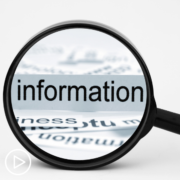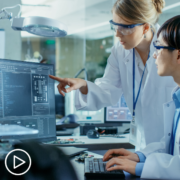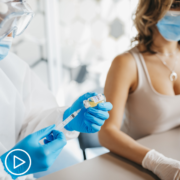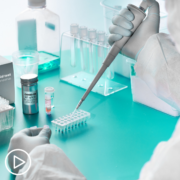How Can People Help Achieve COVID-19 Herd Immunity?
How Can People Help Achieve COVID-19 Herd Immunity? from Patient Empowerment Network on Vimeo.
How can community members help work toward COVID-19 herd immunity? Expert Dr. Shaji Kumar explains why some are hesitant to get COVID-19 vaccines and ways that members in the community can educate others about COVID-19 infection and how vaccine access can be increased in remote areas.
See More From the Best Care No Matter Where You Live Program
Related Programs:
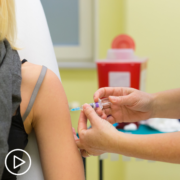
What Actions Should Cancer Patients in Treatment Take with COVID-19 Vaccination? |
Transcript:
Jeff Bushnell:
Vaccine hesitancy has really become sort of the issue to the potential of achieving herd immunity, but the average person, how can we help overcome hesitancy and increase the people’s trust in the vaccine, and also increase the equitable distribution amongst all populations? Problems for being able to get it. What can we do to sort of push ourselves over the hill to get to that herd immunity?
Dr. Shaji Kumar:
You bring up a very important point, and I hope we are in a much better place than many parts of the world right now because we have one of the few countries where a significant proportion of the people have been vaccinated, but we are not quite at the point where we can claim herd immunity, I think we still need to continue to pursue this, and I think the ideal goal is to get everyone who’s eligible to get a vaccine vaccinated. Now, you bring up some of the very important points, because even though vaccine hesitancy is a real problem, the underlying reason behind this is manifold, and the only way to tackle that is we have a multi-front approach that will take into account what is the reason behind it.
So for the people where it’s hard to get to populations which can live in far from the areas, it may be more the ability to use those vaccines, which does need the complicated storage, for example, the J&J vaccine. You only need one dose. It’s easy to store. So that may be one of the approaches to be taken. And people who believe that this is a vaccine is going to create side effects, or it’s part of some grand scheme to introduce a variety of things. I think it’s a person of education, and I think they really need to tell them what can happen with, not really just to them, but the fact that if you continue to allow these infections to proceed on stuff, there are going to be increasing numbers of mutations, and that in turn is going to make the pandemic much more difficult to control in the long run. So it’s totally an individual benefit, but it’s on to the society’s benefit to have everyone be vaccinated. And then definitely, I think knowing that should anything unto it happen, there’s going to be medical care that’s going to be available to these individuals, and I think that’s also an important point, so who are near and dear to them is going to be the key thing

